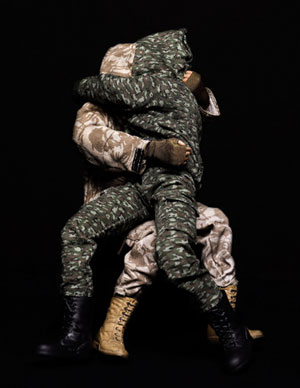
Love, Sex and War : Towards another History of 20th Century Europe
Avant le 30 novembre - Paris
Elissa Mailänder (Centre d’Histoire de Sciences Po), Patrick Farges (Université Sorbonne Nouvelle, CEREG), Stefanie Schüler Springorum (Zentrum für Antisemitismusforschung, TU Berlin)
Workshop One – Sources for Historians of Love, Sex, and War
This workshop will launch a two-‐year research project focusing on the history of love, sex, and war in Europe. Historian Dagmar Herzog has called the 20th century “the century of sex,” while Laura Lee Downs and Kathleen Canning consider it a time when “gender troubles” emerged. Yet, the 20th century also initiated greater equality between the sexes and increasing liberalization of sexual norms and rights. Both categories – gender and sexuality – profoundly shaped the last century. Two world wars, genocide, and other episodes of mass violence make it crucial to examine European societies from a social and cultural perspective and to ask : what role did gender and sexuality play in these events ?
War affects many aspects in the everyday lives of civilians and combatants. Moreover, it irrevocably alters life after the hostilities end. Recently, scholars (e.g. Andrew Bergerson, Jennifer Evans, and Christa Hämmerle) have placed particular attention to the sources available to examine the history of love, sex, and war. By examining key issues of extant sources, our first workshop will begin to peel back the layers of time that re-‐ shaped scholars’ conceptions of love and sexuality in times of war.
The workshop aims to identify specific sources that explore emotional realms such as affection, desire, inhibitions, repulsion, and grief. Indeed, writing a history of sexuality and emotions might require the scholars in general, and, the workshop participants in particular, to interrogate other forms of evidence and employ specific methods of analysis. Outmoded sources can open paths to answer new questions. New sources can be mobilized and created, as is the case with oral histories. Individual accounts, including autobiographies and witness testimonies, are important because they provide insight into a private sphere that, especially in wartime, is inherently political.
Although sources may include tangible traces of sexual practices and emotional responses only sporadically, they nevertheless embed the narrated acts into a larger socio-‐historical framework. This first workshop is will focus on exploring the range and interpretive possibilities of sources, including oral histories, ego-‐documents, institutional records, and (audio) visual sources.
How do these sources expand our understanding of love, sex, and war ? What can they tell us about the emotions and social practices ? What theoretical implications and methodological challenges arise for historians engaging with those sources ?
Date : May 18-‐19, 2015 Location : Paris (Centre d’Histoire de Sciences Po, 56 rue Jacob, 75006 Paris)
Application : Please send your abstract (max. 500 words) and a short biography (max. 1 page) to elissa.mailander@sciencespo.fr and patrick.farges@univ-‐paris3.fr before 30 November 2014.
We encourage PhD candidates and early career post-‐docs to apply for the workshop.
Fichiers de syndication :
Statistiques :
Le site contient 4383 articles
